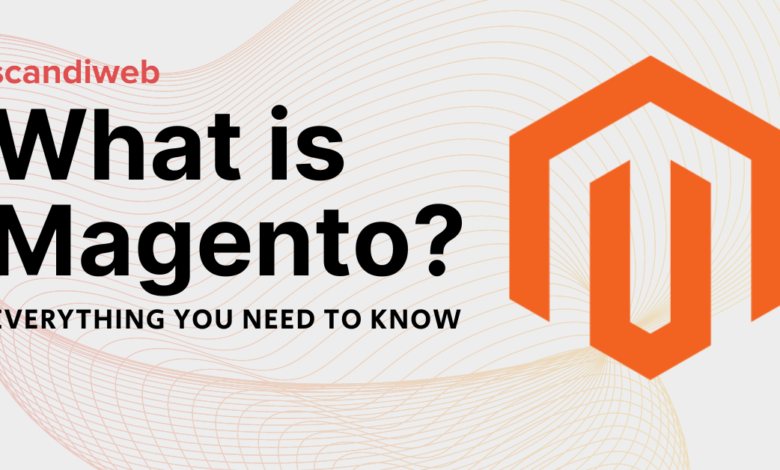Navigating the Complexities of Magento B2B Development: A Comprehensive Guide for Store Owners

Introduction
The realm of B2B e-commerce is rapidly evolving, and Magento has emerged as a powerful platform to cater to this market’s unique needs. This article aims to provide a detailed guide on Magento B2B development, offering insights and strategies for store owners looking to either expand or improve their B2B operations.
Read Also: Why Consider Magento for B2B businesses?
Understanding Magento B2B E-commerce
Magento’s platform offers a robust and flexible solution tailored for the intricate demands of B2B e-commerce. This environment is markedly different from its B2C counterpart, with distinct challenges and requirements. In B2B transactions, businesses often face more intricate pricing models, necessitating a system that can handle varying pricing structures based on customer agreements, bulk purchases, or even membership levels. Magento adeptly addresses these complexities by providing dynamic pricing solutions that can be customized to meet the diverse needs of different business clients. Moreover, B2B orders tend to be larger and more complex than typical consumer purchases. Magento’s platform is designed to efficiently manage these large-scale transactions, supporting bulk ordering capabilities that simplify the purchasing process for both buyers and sellers. This feature is crucial in catering to B2B customers who often place orders in large quantities and require a streamlined process for order management.
Another critical aspect of B2B e-commerce is the sales cycle, which is typically longer and more involved compared to B2C. Magento’s comprehensive account management tools are instrumental in managing this extended sales process. These tools allow businesses to create and manage customer profiles, track order histories, and customize the buying experience for each client. This level of personalized management is essential in building and maintaining strong B2B relationships. Magento’s capabilities for B2B e-commerce are extensive and adaptable. Unlike B2C, B2B transactions typically involve more complex pricing models, larger orders, and longer sales cycles. Magento addresses these differences with features like customized pricing, bulk ordering capabilities, and comprehensive account management tools.
Planning Your Magento B2B Development
Strategic planning is paramount in Magento B2B development. Start by identifying your business objectives and mapping out the functionalities you need. This includes understanding your target audience’s specific requirements and tailoring your approach to meet these needs effectively.
Essential Features of Magento for B2B E-commerce
Magento offers several essential features for B2B e-commerce:
– Custom Pricing and Bulk Order Functionalities: These allow for tailored pricing strategies and handling large volume orders efficiently.
– Account Management Features: These features enable B2B customers to manage their accounts, track orders, and handle reordering seamlessly.
– Complex Product Catalogs and Inventory Management: They ensure that you can manage a wide range of products and maintain accurate stock levels.
– Integration Capabilities: Magento can integrate with ERP, CRM, and other business systems, streamlining various business processes.
Designing a User-Friendly B2B E-commerce Experience
When designing a B2B e-commerce store on Magento, focus on creating a user-friendly interface. An efficient and intuitive navigation structure is key to helping B2B customers find what they need quickly and easily.
Customization and Extensibility in Magento B2B
Magento’s customization and extensibility are crucial for B2B stores. Utilize Magento extensions and third-party integrations to enhance functionality. Understand the scope of customization and its impact on your operations to make informed decisions.
Managing B2B Transactions and Workflow
Efficiently managing B2B transactions involves streamlining order processing and fulfillment. Automate routine tasks and complex workflows to improve efficiency. Additionally, be sure to accommodate B2B-specific payment methods and terms.
Security and Compliance Considerations
Data security and privacy are critical in B2B transactions. Ensure your Magento B2B site complies with industry standards and regulations. This not only protects your data but also builds trust with your customers.
Performance Optimization and Scalability
Optimizing your Magento B2B site for performance is crucial. Implement strategies to enhance site speed and user experience. Ensure scalability to handle growing business demands, preparing your platform for future expansion.
Ongoing Support and Maintenance
Regular maintenance is vital for the longevity and success of your Magento B2B site. Partner with the right Magento support services to ensure your site remains up-to-date, secure, and functional.
Future Trends in Magento B2B E-commerce
Stay abreast of the upcoming trends and advancements in Magento B2B e-commerce. This includes preparing for future changes and technology integrations that could impact the way you do business.
Conclusion
Magento is an excellent platform for robust and scalable B2B e-commerce solutions. By understanding its features, planning strategically, and focusing on customization and user experience, you can develop a successful B2B e-commerce platform. Take the next step in your Magento B2B journey. Whether you’re looking to expand your existing operations or starting anew, embrace the capabilities of Magento to drive your business forward. Consider seeking expert advice or exploring further resources to guide you in this journey.
Read Also: Magento B2B Pricing: Understanding Website Development Cost
FAQ’s
Q: What makes Magento a suitable platform for B2B e-commerce?
A: Magento offers advanced B2B features like customized pricing, bulk ordering, complex product catalogs, and integration capabilities with ERP and CRM systems, making it ideal for B2B e-commerce needs.
Q: How does Magento B2B differ from Magento B2C?
A: Magento B2B is designed for the unique requirements of business-to-business transactions, including complex pricing models, larger order volumes, account management features, and extended payment terms, which are not typically a focus in B2C.
Q: Can Magento handle large product catalogs and multiple price lists?
A: Yes, Magento can efficiently manage large product catalogs and allows for multiple price lists, which can be customized for different customer groups in a B2B scenario.
Q: Is it possible to integrate Magento with existing ERP or CRM systems?
A: Absolutely. Magento offers robust integration capabilities with various ERP and CRM systems, facilitating seamless data exchange and streamlined business processes.
Q: How customizable is Magento for specific B2B needs?
A: Magento is highly customizable. It can be tailored to meet specific B2B requirements through custom development, extensions, and third-party integrations.
Q: What should I consider when planning Magento B2B development?
A: Consider defining clear business objectives, understanding the unique needs of your B2B audience, and planning required functionalities like custom pricing, account management, and order processing workflows.
Q: Are there specific security concerns for Magento B2B sites?
A: Like any e-commerce platform, ensuring data security and compliance with industry regulations is crucial. Magento provides robust security features that can be enhanced through best practices and additional security extensions.
Q: How can I optimize the performance of my Magento B2B site?
A: Performance can be optimized through caching, image optimization, using a content delivery network (CDN), and ensuring efficient coding practices. Regular performance audits are also recommended.
Q: What kind of post-launch support should I expect for my Magento B2B site?
A: Post-launch support should include bug fixes, security updates, performance optimization, and possibly further development for new features or integration needs.
Q: How can I prepare my Magento B2B site for future e-commerce trends?
A: Stay informed about emerging e-commerce trends, regularly update your Magento installation, and consider adopting new technologies and integrations that align with future advancements in B2B e-commerce.




